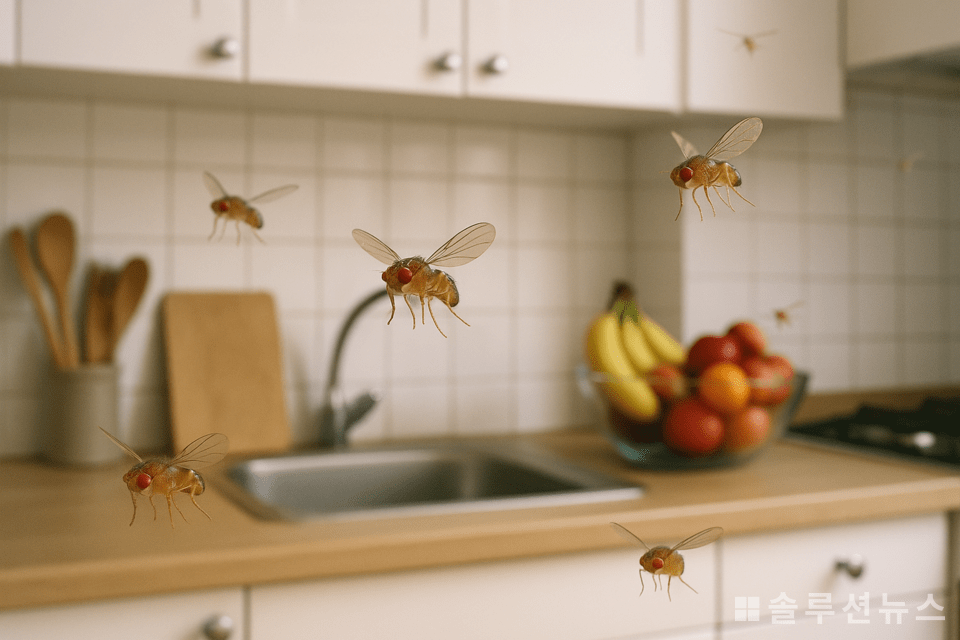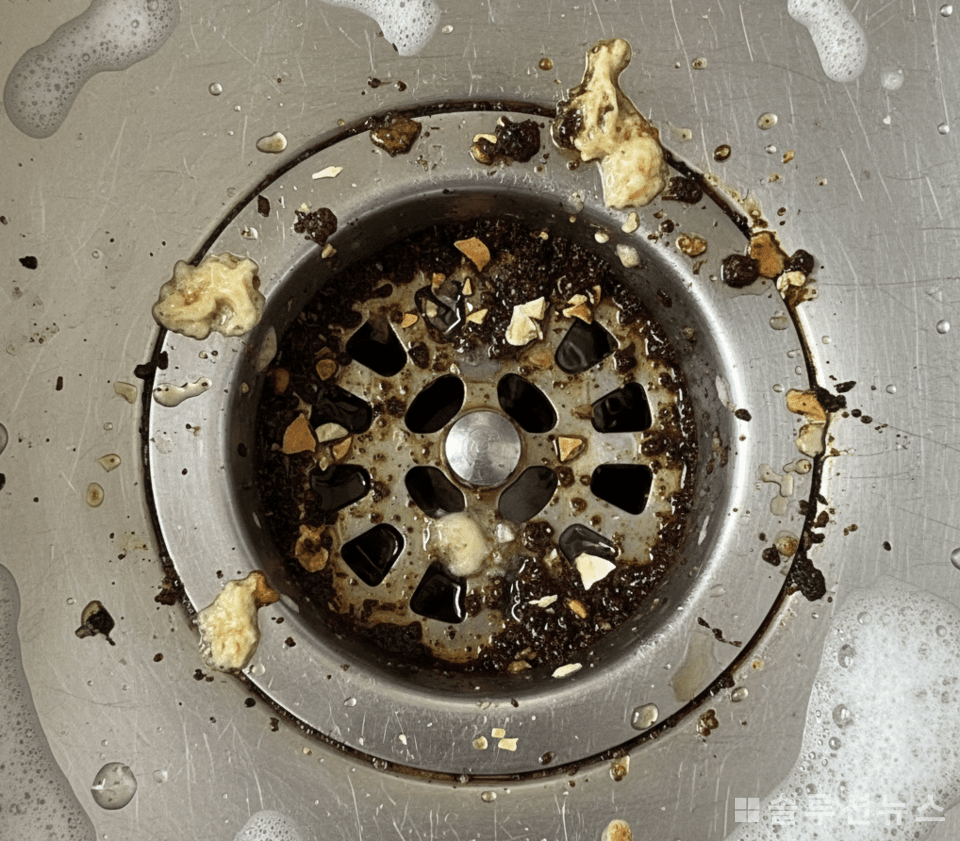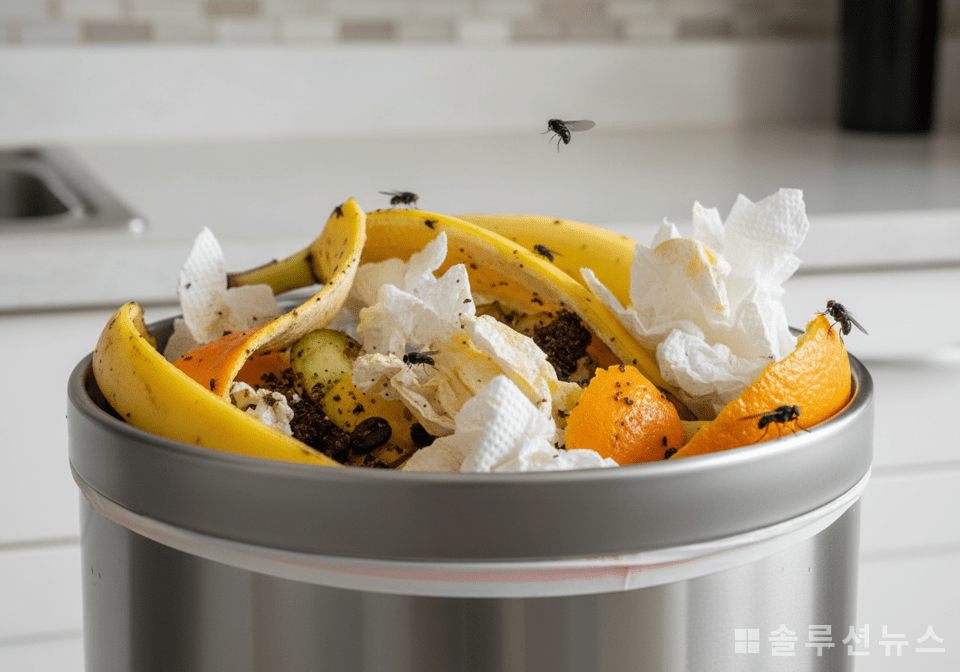During the summer, many people struggle to avoid the small bugs known as fruit flies that fly around the kitchen. These fruit flies, which can appear in the blink of an eye and occupy various parts of the house, can lead to issues beyond just inconvenience, extending to hygiene problems. Although they are small in size, their reproductive power is strong, and once they appear, they may not disappear for weeks.
Why do fruit flies become particularly abundant in the summer, where do they come from, and how can they be prevented?

Fruit flies breed when hot weather meets organic matter. They are insects sensitive to humidity and temperature. Generally, when the temperature rises above 25 degrees Celsius, their breeding activity becomes pronounced. The life cycle of a fruit fly averages 8 to 10 days, and a single female can lay up to 500 eggs. In hot environments, eggs can hatch in just one day.
Fruit flies multiply rapidly, especially where there is an abundance of decaying organic matter. Fruit peels, food waste, empty bottles stained with drinks or alcohol, and unwashed dishes all serve as breeding grounds. In summer, decay progresses quickly, so even food left unattended for a short time can lead to their emergence.
The most common place to find fruit flies at home is the kitchen. Environments where leftover ingredients from cooking, unwashed dishes, and food scraps are left as they are considered ideal for fruit flies.
Besides the kitchen, fruit flies are often found in drains. If food scraps, grease, and soap bubbles remain in the sink or bathroom drains, fruit flies can breed there as well. Dark, humid conditions and the difficulty in cleaning due to isolation from the outside make drains a perfect breeding environment.
If fruit flies are often seen near drains, or if insects fly out when the lid is opened, it indicates that a habitat has already formed. Especially in older buildings or houses with poor plumbing conditions, this phenomenon occurs frequently. Unused drains can also become breeding grounds if the water in traps dries up, leaving organic matter.
Therefore, regular cleaning of drains, using covers, and maintaining trap moisture is necessary. Using bleach or drain-specific cleaning agents to remove internal organic matter is effective.

Fruit flies do not come from outside but breed inside the house. Many people believe that fruit flies come from outside. However, in reality, they mostly occur indoors. Although they are tiny insects, the places where they can lay eggs are limited. Decaying organic matter is essential for laying eggs, making the kitchen within the house an ideal setting.
If food waste is not sealed and is left unattended, or if fruit peels are thrown into open trash cans, fruit flies can enter within hours. The habit of disposing beverage containers like bottles, cans, and plastic bottles without rinsing them is another cause.
Once fruit flies appear, eggs and larvae not visible to the human eye can spread to different places. Beneath tables, in trash can lid crevices, under cabinets, and other unseen places continue to be where they breed. To prevent them, it is important not to delay disposing of trash even for a day, and always wash and organize dishes and bottles.

While fruit flies mainly breed inside the house, external entry is not entirely preventable. In summer, windows are opened frequently for indoor temperature control and ventilation. If the screens are damaged or windows are left open for a long time, fruit flies from outside can come in.
Especially for those living on the first floor, semi-basements, or basement levels, fruit flies developed in outdoor food waste sites, compost piles, or garden flowerbeds may enter. Bags of food waste or fruit peels on the balcony and pet food bowls can also attract fruit flies.
Therefore, installing screens on windows during ventilation or using supplementary methods like insect repellent film and traps is recommended.
The most effective prevention is thorough management of food and organic matter. Although insecticide sprays or traps can partially eliminate them, thorough hygiene management is the fundamental solution. The key is the “immediate processing” of food and organic matter. After meals, dishes should not be postponed, and food waste should be sealed and disposed of.
The sink and drains should have water flushed through them daily, and should be cleaned periodically with cleaning agents. Fruits and vegetables should not be left at room temperature for long, and when storing them, be sure to use airtight containers.
Traps and baits are only temporary solutions; if the breeding environment remains, the reproduction cycle will repeat. Therefore, the most reliable way to avoid fruit flies is to create an environment in which they cannot breed.
A tiny insect can show a ‘hygiene alarm.’ Although small in size, fruit flies have excellent reproductive power and adaptability, so if neglected, they can spread throughout the entire house. The appearance of even one should be taken as a ‘warning’ that hygiene is not being managed.
To prevent discomfort and hygiene issues caused by fruit flies in summer, managing household organic matter and keeping kitchens and drains clean is crucial. By making just minor changes in everyday habits, you can keep fruit flies at bay.